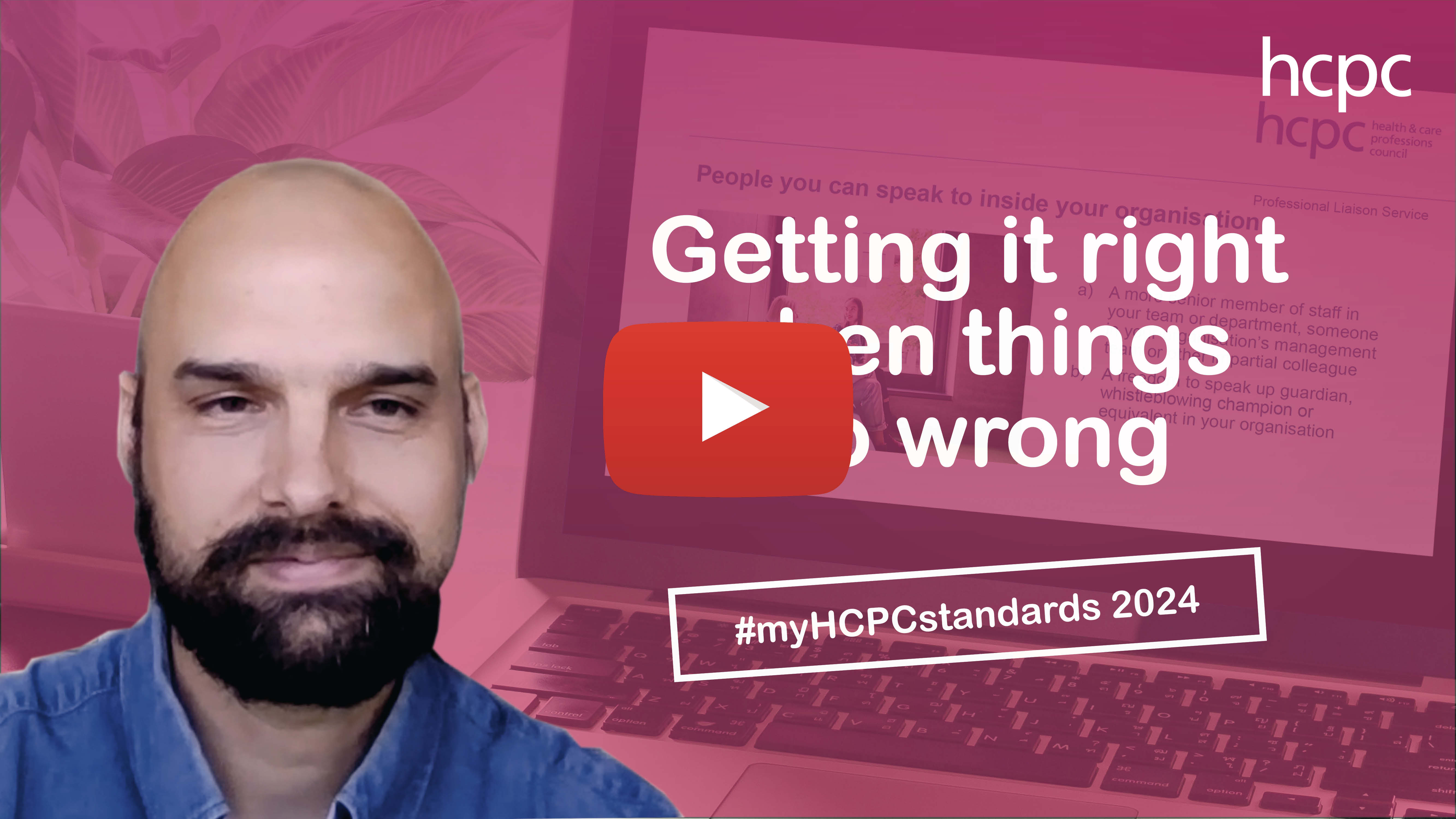Being candid plays an important part in all health and care professionals’ roles.
In practice, this requires you to:
- apologise to a service user and/or their carer when something has gone wrong with the care, treatment or other services that you provide.
- inform service users and where appropriate carers, or where you do not have direct access to these individuals the lead clinician, that something has gone wrong;
- where applicable, alert your employer of what has gone wrong and following the relevant internal procedures;
- provide service users and carers with a detailed explanation of the circumstances in which things have gone wrong and the likely impact; and
- take action to correct the mistake if possible and detail this action to the service user and where appropriate, their carer.
Video: the duty of candour in practice
In this video, Dr Rob Elias – consultant and former candour guardian for Kings College Hospital – explores what the duty of candour looks like in practice, along with HCPC colleagues. This includes what we mean by ‘apologising’ and the different reporting requirements to be aware of and follow.
Please note this video was recorded in 2021. Since then, there have been updates to the HCPC standards of proficiency (2023), revisions to the HCPC standards of conduct, performance and ethics (2024) and there may have been changes to other external policies.
Further information
Page updated on: 31/08/2024


